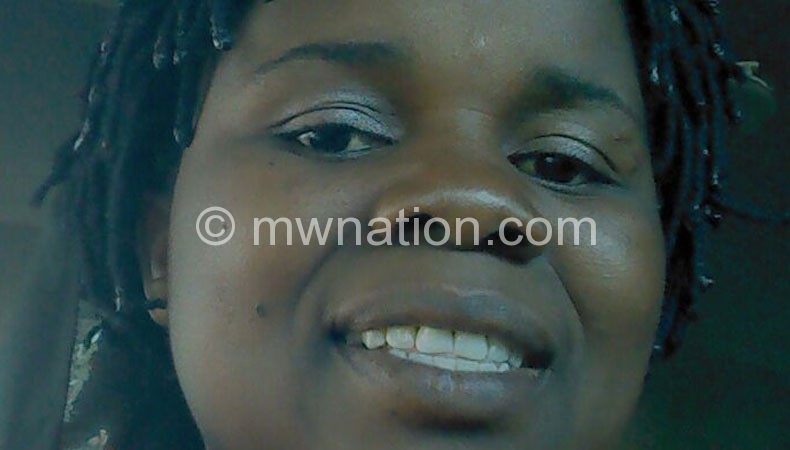Big Interview: Memory Mdyetseni

Nine years ago, she embarked on a journey to establish a prestigious institution in one of the rural settings in the country with the sole aim of promoting girls’ education. Today, Atsikana Pa Ulendo (Girls on the Move) has become an asset to many underprivieldged girls who would have otherwise faield to accomplish their dreams. I spoke to the co-founder and director Memory Mdyetseni.
Who is Memory Mdyetseni?
I am a Malawian woman, founder and director of Atsikana Pa Ulendo Secondary School; wife and mother of three boys. I was born on March 21, 1979.
What sort of upbringing did you have?
My early years were good having been raised by both parents, but things started to change when I lost my mother while in Standard Six. My father died when I when I was in Form One. After losing my mother, I was the oldest daughter and, therefore, responsible for five of my siblings. It was tough to take the responsibility of a mother at the same time attend school, but I made it to Lilongwe Girls Secondary School .When my father died, I knew very little about our relatives and did not know where to seek help. One day, a man came and explained he was a friend of my father and offered to take responsibility for my education. He was very much a stranger to me, but he honoured his words and took me in. The rest of my siblings were scattered all over in different households. They say lightning does not strike twice, but it did for me soon after I finished my Form Four. My adopted father died soon after I sat my Malawi School Certificate of Education (MSCE). With nobody else to stay with, I boarded the bus to the only place I felt connected to; the village where we buried my father.
Tell me about your education background?
I hold a Bachelor’s Degree in Biblical Studies from the African Bible College with a minor in education. I also attended St Marys Girls Secondary School and Lunyangwa Girls Primary School.
How did you come up with the idea of the school?
When I returned to my father’s village, there was a huge difference with the way of life I was used to. It was all about drawing water, cooking, fetching fire wood, cultivating the land and harvesting tobacco. Nothing inspiring and it seemed hopeless for a girl who has gone all the way to Form Four. Close to my home, there was a small school for girls operated by some Canadians. I thought about being useful by volunteering to teach Bible Knowledge, English and Chichewa.
The school had numerous problems, from administrative to personnel and ended up closing down, leaving 28 girls without an alternative. I and a Canadian colleague, Christie Johnson, decided to rescue the situation. Johnson returned home and I went on to work with the girls. In Canada, she took up the task of sourcing school fees and I was tasked with finding alternative schools and co-ordinating all activities. The difficulties I encountered while co-ordinating these activities prompted the idea of opening a school. Some schools we tried to enrol the girls were sceptical about our ability to sponsor all girls. Most refused to even grant us appointments for enrolment.
Why do you only target girls?
Living in a village for three years was enough lesson to know that people live in almost slavery conditions just for being girls. The only way to escape is to get an education.
How many girls have you educated?
After opening its doors in 2008, the school has graduated four cohorts of about 80 each and over 30 have so far made it into public universities. The results keep on improving with each passing year. We have 420 students on campus currently.
Do you only admit girls from Nsaru or the school is open to other girls from all over the country?
We have two types of students; those on scholarship and those on self sponsorship on a 1:1 ratio; 80 percent of the scholarships are awarded to children coming from a 50 km radius is Nsaru, our catchment area. Twenty percent of the scholarships are awarded on a case by case basis and self sponsored girls come from all over the country.
Who are your funders?
We have a very good working relationship with rotary groups from Canada; most of our funding has been organised by rotary clubs and individuals connected with them.
How else do you help the girls?
We are supporting girls attending university and teacher training colleges. We have also been able to connect some of our alumni to universities abroad. Previously, we supported girls with start-up capital to start small businesses, but that didn’t succeed. Some girls pick up jobs within the school after graduation.
What have been your challenges?
Challenges are many, the largest being finances to operate to the optimum and reach out to as many girls as we can. Due to limited space, on numerous occasions we have sent back capable and willing girls with tears in their eyes, crying for a chance to get educated.
Do you have other plans?
We intend to expand this school. God willing, we plan to open a few more schools operating under the Atsikana Pa Ulendo model countrywide and venture into tertiary education.
Any last comments?
The demand for quality education is huge and more action, not rhetoric, is needed to change the destiny of girls. There is potential in our girls.





